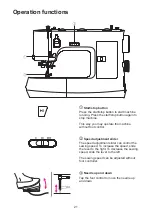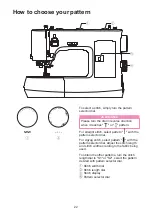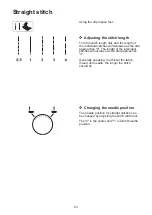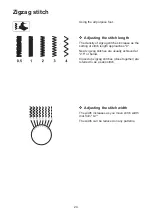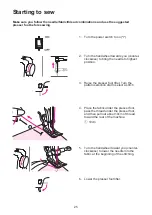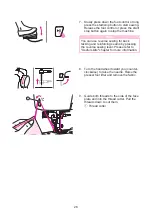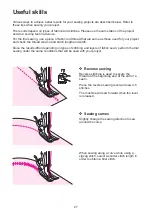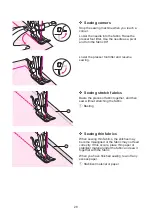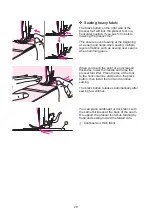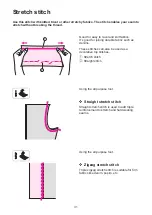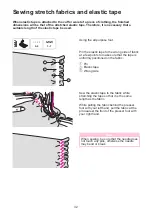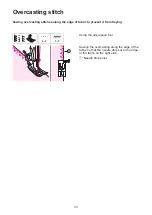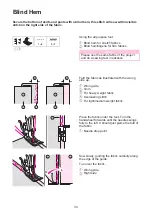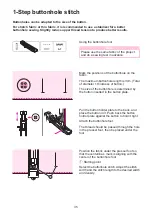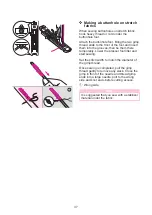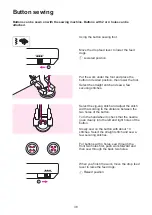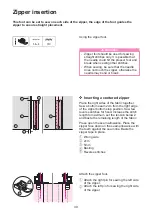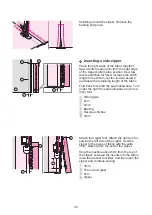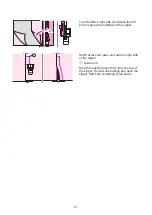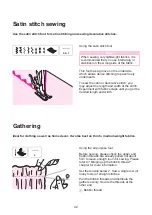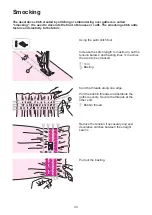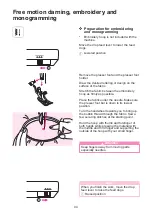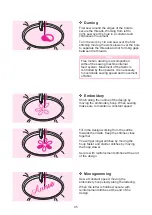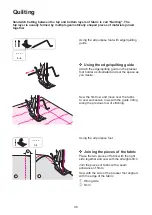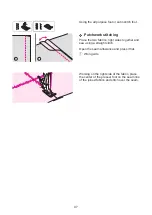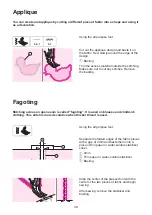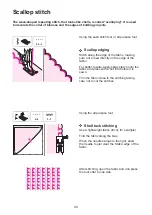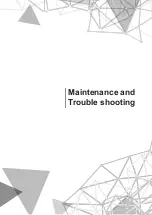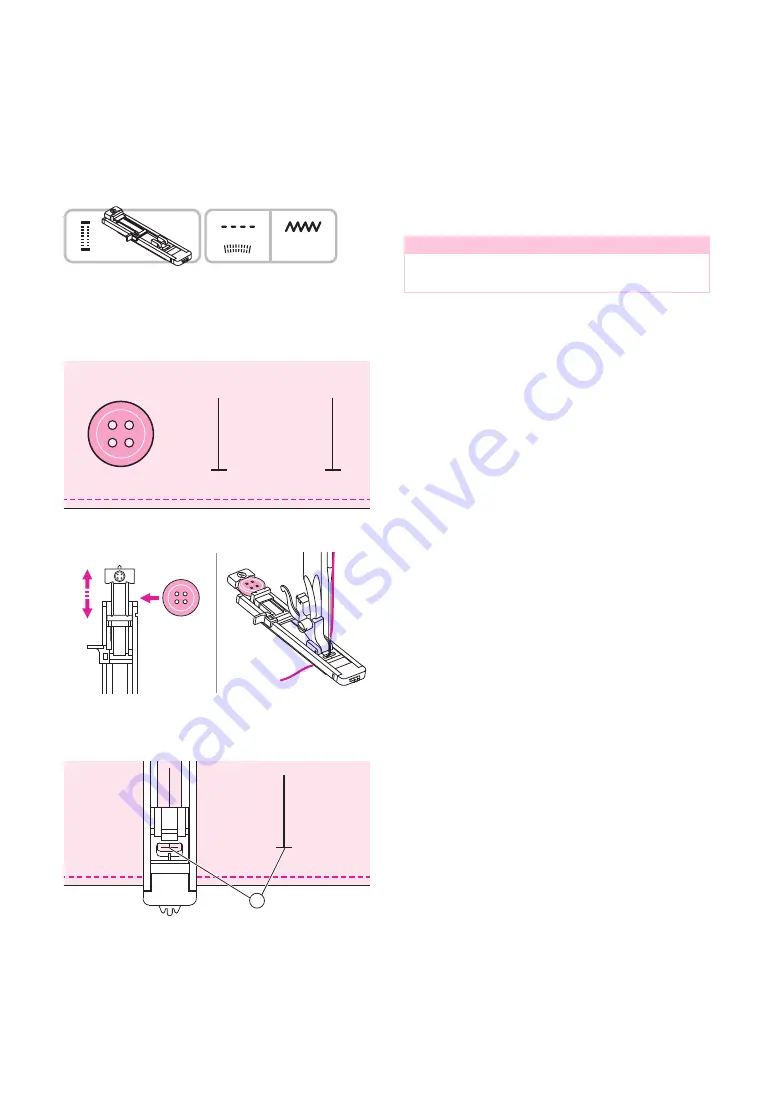
35
1-Step buttonhole stitch
Buttonholes can be adapted to the size of the button.
For stretch fabric or thin fabric, it is recommended to use a stabilizer for a better
buttonhole sewing. Slightly reduce upper thread tension to produce better results.
5~7
Using
the buttonhole foot.
Note
Please use the same fabric of the project
and do a sewing test in advance.
Mark the positions of the buttonhole on the
fabric.
The maximum buttonhole length is 3cm. (Total
of di thickness of button.)
The size of the buttonhole is determined by
the button inserted in the button plate.
Pull the button holder plate to the back, and
place the button in it. Push back the button
holder plate against the button to hold it tight.
Attach the buttonhole foot.
The thread should be passed through the hole
in the presser foot, then be placed under the
foot.
Position the fabric under the presser foot so
that the centerline’s mark is aligning with the
center of the buttonhole foot.
①
Starting point
Select the buttonhole stitch. Adjust the stitch
width and the stitch length to the desired width
and density.
1
Summary of Contents for NC-59QD
Page 1: ...Instruction Manual NC 59QD NecchiAIO Enjoy your Necchi time...
Page 2: ......
Page 7: ...Machine Introduction...
Page 11: ...Machine Setup...
Page 26: ...Sewing Basics...
Page 36: ...Utility Stitches...
Page 56: ...Maintenance and Trouble shooting...
Page 61: ......
Page 62: ......
Page 63: ......

